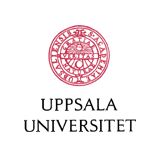|
Advanced Computer Control Project
Processreglering (Until 2005)
-
Educational programs:
| Program |
Course Code |
Points |
Reg Code |
| Engineering physics |
1TT601 |
4 |
- |
| Mathematics and natural sciences |
1RT160 |
5 |
62535 |
| Single course |
1RT160 |
5 |
62535 |
- Course moments:
-
Course description
for year 2005 (in swedish)
Schedule for lectures.
Course homepage and results
-
Goal:
-
This project-oriented course is aimed to reinforce and deepen the knowledge
about control systems. The project involves the control and supervision
of a multivariable process with a computer system, using various approaches.
The course gives ample opportunity for independent and creative work. It
also provides experience in the design of human-computer interfaces, and
in the use of Matlab, HTML and Java programming languages.
-
Prerequisites:
-
Automatic Control and Control Design, or equivalent
courses.
-
Contents:
-
Implementation: Fault detection and alarm handling. The process
interface. Computer systems and program development for control systems.
Real-time issues. The use of Matlab and Matlab-C compilers. Real-time control
with Matlab. The human-computer interface: Interface design, HTML and browser-based
interfaces. The Java programming language.
-
Modelling: Physical modelling. Transient-, frequency- and spectral
analysis. System identification in the frequency domain. System identification
with the prediction error method. Subspace identification of multivariable
systems.
-
Regulator design: Feedforward compensation for noninteracting control
of multivariable plants. More on PID control. Gain scheduling. Regulator
and servo synthesis with polynomial methods. Infinite horizon LQ control
with integration, designed by state space methods and polynomial methods.
Analysis of robustness and the synthesis of robust control systems. Adaptive
control with direct and indirect algorithms. Practical aspects of adaptive
control. Decomposition of multivariable systems.
-
Project:
-
Groups of 4 students can choose among six project variants, which differ
in the way the process is modelled:
-
Physical modelling and multivariable control.
-
System identification in the frequency domain.
-
System identification with prediction error methods.
-
Direct adaptive control.
-
Indirect adaptive control.
-
Multivariable control
All projects work on coupled electric drives laboratory processes. The
control systems are developed mainly in Matlab under Linux. The human-computer
interface utilizes Web browsers and is written in HTML and Java.
-
Examination:
-
Written report and oral presentation of the project, and a demonstration
of the resulting control system. Each group will also develop their own
Webpage, which presents the results.
-
Literature:
-
Introduction
to the course (in swedish)
-
M Sternad: Modelling
and Control, 1994
-
A. Ahlén and M. Sternad: An introduction to adaptive control, 1988
-
K.J. Åström, B. Wittenmark:
Computer Controlled Systems,
Prentice-Hall, 1996.
-
Recommended additional reference: K.J. Åström, B. Wittenmark:
Adaptive Control, Addison-Wesley, Second ed. 1995.
-
Course responsibility:
-
Department of Engineering Sciences,
Signals and Systems Group.
|

